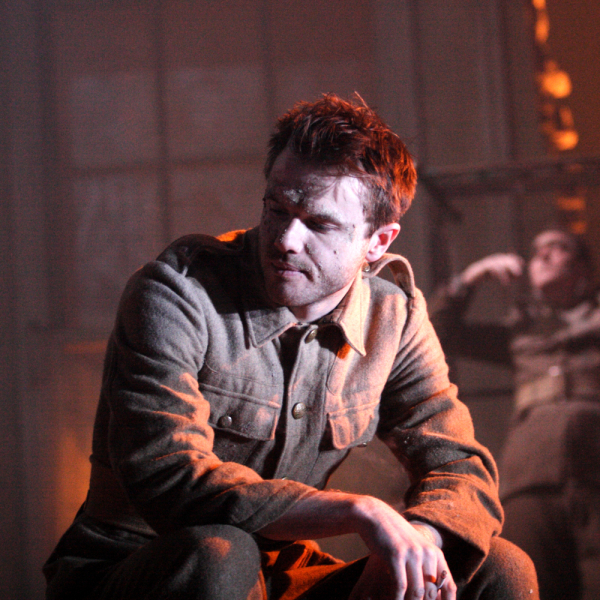The Silver Tassie (NT Lyttelton)

© Catherine Ashmore
The National Theatre’s no-expense-spared revival of Sean O’Casey’s 1928 anti-war epic assaults the senses with (in the words of Oh What a Lovely War, for which it was something of a prototype) battles, songs and a few jokes. There’s an explosive coup de théâtre along the way and one damp – no, sopping wet – squib.
Set initially in one of O’Casey’s familiar, down-at-heel Dublin residences, The Silver Tassie disconcerts at every turn. The play’s title refers to a football champions’ cup that heroic Harry Heegan (Ronan Raftery) brings home in triumph before heading off to do his bit in the Great War. When he returns, alive but paralysed from the waist down, the trophy taunts him almost as much as the inconstancy of his former girlfriend.
O’Casey evokes the war itself with astonishing theatrical originality and, as designed by Vicki Mortimer and executed by chief armourer Paul Wanklin, the transition from tenement to battlefield is the most spectacular (and deafening) example of a collapsing stage since Jonathan Kent’s King Lear. Visually it’s of a piece with the ensuing 30 minutes: a nightmare of fragmentary dialogue that writhes and twists its way through heightened realism and poetic expressionism.
Which is where the big disappointment kicks in. As in Oh What a Lovely War, the impact of words and songs that smile through adversity ought to be shattering. Instead, doyen composer Stephen Warbeck has provided a score that ignores the play’s textual irony and piles on the gloom. His meandering melodic lines and forays into near-rap neutralise O’Casey’s message and flatten out the latent savagery.
This may be director Howard Davies‘s only significant misjudgement, but it’s a big one. The audience finds itself alienated just when it should be gripped, and the play never quite recovers.
O’Casey, author of the unforgettable Dublin Trilogy (The Shadow of a Gunman, Juno and the Paycock, The Plough and the Stars), was a master of intimate drama. However, working on a larger canvas he struggled to delineate a busy populace with adequate subtlety or depth. Craic trumps characterisation at every turn. Comic relief arises from the ubiquitous Sylvester and Simon, a tiresome twosome played here with valiant commitment by Aidan McArdle and Stephen Kennedy, and from Judith Roddy‘s Susie Monican, the religious zealot-turned-nurse whose "tambourine theology" is knocked out of her less by the horrors of war than by a whirlwind affair with a hospital surgeon (Jim Creighton).
Serious roles, though uniformly well taken, are beset by a sameness that can make them hard to distinguish. Raftery’s broken hero is an exception to this rule; Aidan Kelly‘s Teddy Foran even more so. Kelly’s implosion from angry battle veteran (a presciently accurate depiction of post traumatic stress disorder) to childlike empty shell is a devastating piece of controlled acting.










